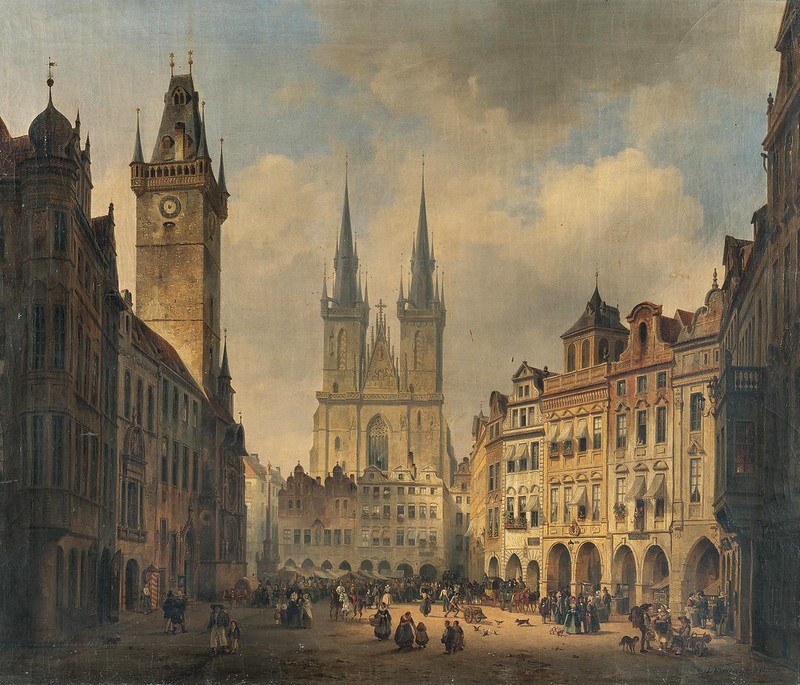Jan Křtitel Kuchař (1751-1829)
- Partita (C-Dur) per il Organo
Performers: Eva Bublová (organ)
Painting: Ambros Ivo Vermeersch (1809-1852) - Blick auf die Teynkirche und den Altstädter Ring in Prag
Further info: Jan Křtitel Kuchař (1751-1829)
---
Bohemian organist, composer and music teacher. He acquired his basic
musical education in Vrchlabí with the cantor and organist A. Tham, and
continued learning the organ at the Jesuit colleges at Königgrätz (now
Hradec Králové) and Jičín. He completed his musical training with J.N.
Seger in Prague, and became the organist of St Jindřich (1772-1790). On 1
September 1790 he was appointed organist of the abbey church at the
Premonstratensian Strahov monastery in Prague and held this post under
the choirmasters Dlabač (1788-1807) and Strniště (from 1807) until his
death. From about 1791 to 1797 he was also maestro di cappella of the
Italian Opera in Prague. He was active as a teacher of singing, the
piano and composition, and as a performer on the harpsichord, piano,
musical glasses and mandolin. As an organist he performed in many public
concerts, including the Prague performance of Haydn’s The Creation
(1800). His abilities as an organist were highly praised, particularly
by J.G. Naumann. Kuchař’s son Joseph, a Premonstratensian at Strahov
(under the name Candidus), also played the organ and piano. Kuchař was
an important champion of Mozart in Prague (in Don Giovanni the words ‘Si
eccelente è il vostro cuoco’ are referring directly to Kuchař (‘cook’
in Czech), who was a member of the Prague opera orchestra at the time of
the première). He was the first to arrange vocal scores of Mozart’s
operas, starting with Le nozze di Figaro (advertised in June 1787). He
also composed recitatives for an Italian version of Die Zauberflöte
which was performed at the Nostitzsches Nationaltheater in 1794 and
probably also in Dresden and Leipzig performances that year. Despite
Kuchař’s contemporary esteem, his extant compositions are not above
average quality for the Classical period. Only a few of the organ
fantasias and preludes are notable for their hints of early Romanticism.

Cap comentari:
Publica un comentari a l'entrada